of mass learning of English
identifying of stereotypes about English
societyunwritten rules of behavior in it
how these rules reflect national character of the British
FindSlide.org - это сайт презентаций, докладов, шаблонов в формате PowerPoint.
Email: Нажмите что бы посмотреть



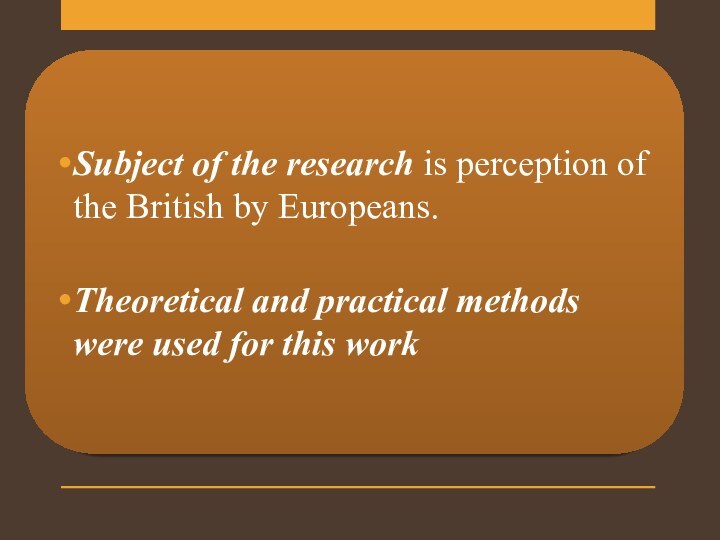
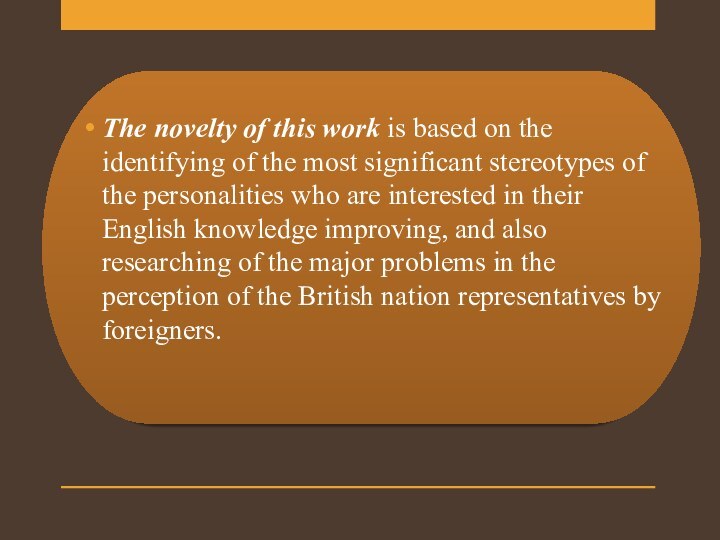
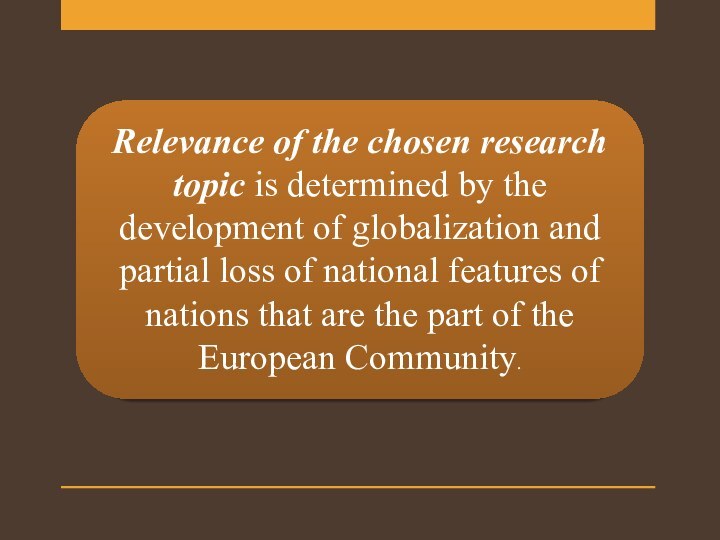
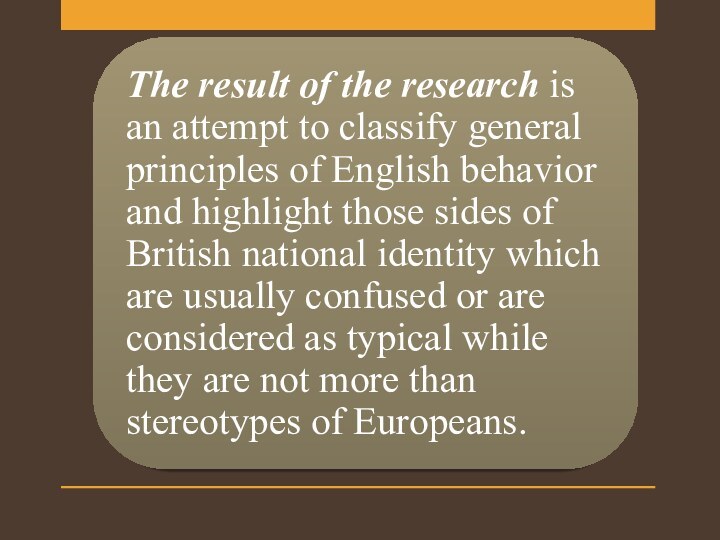


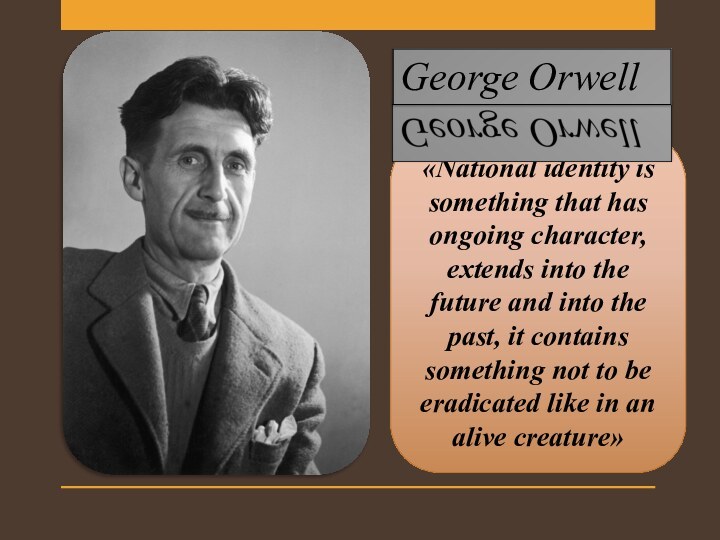
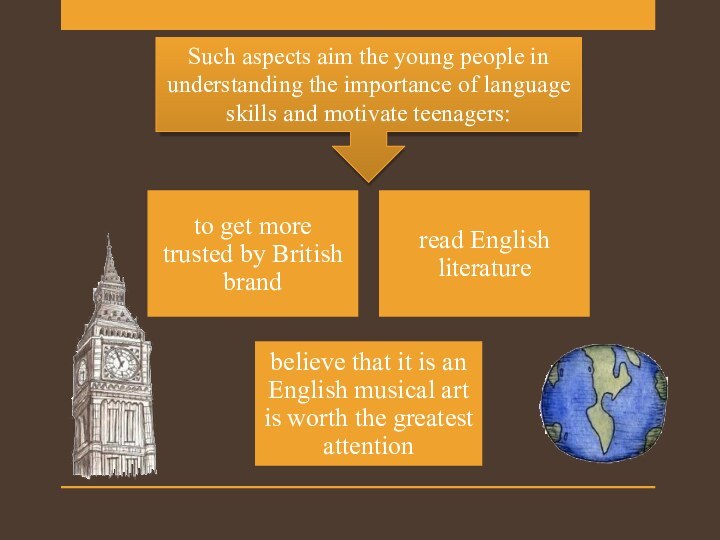
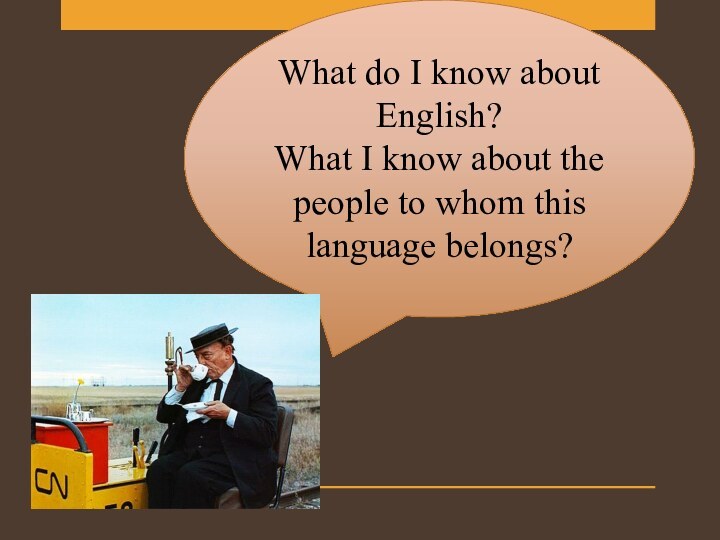


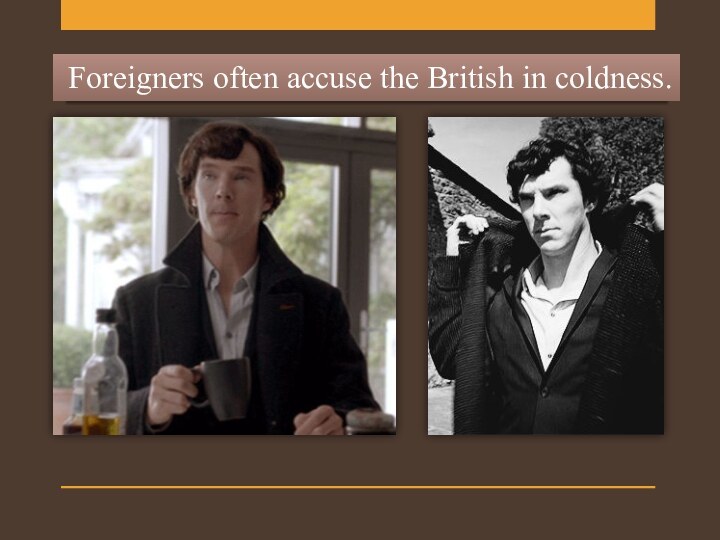
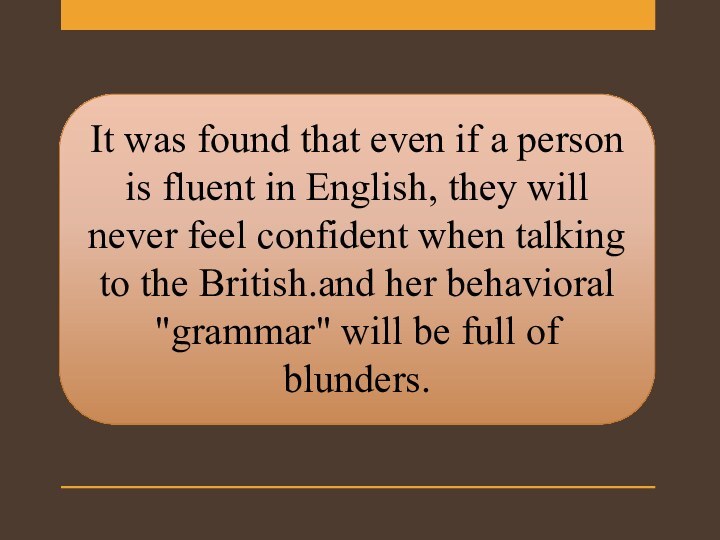
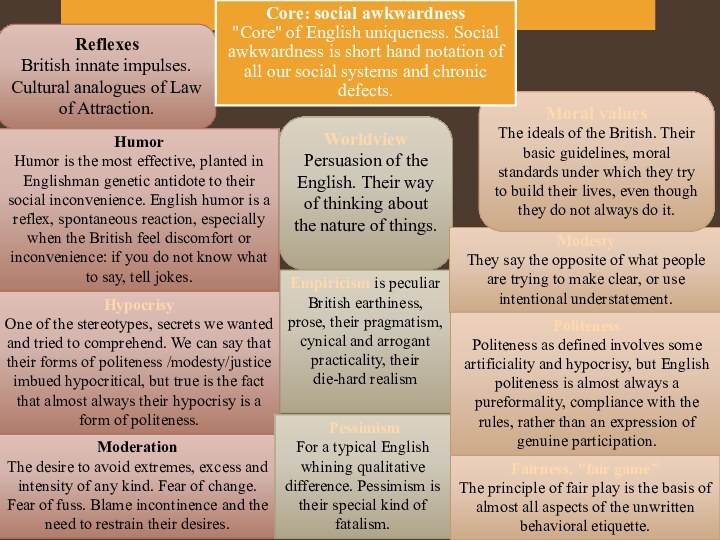
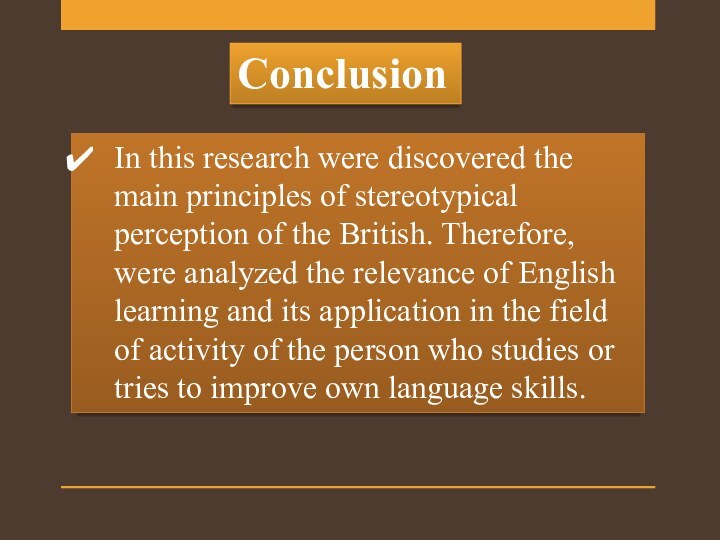
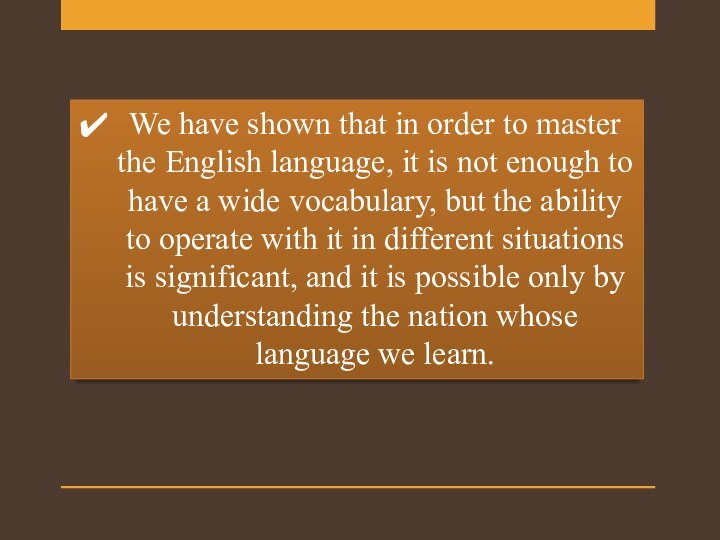
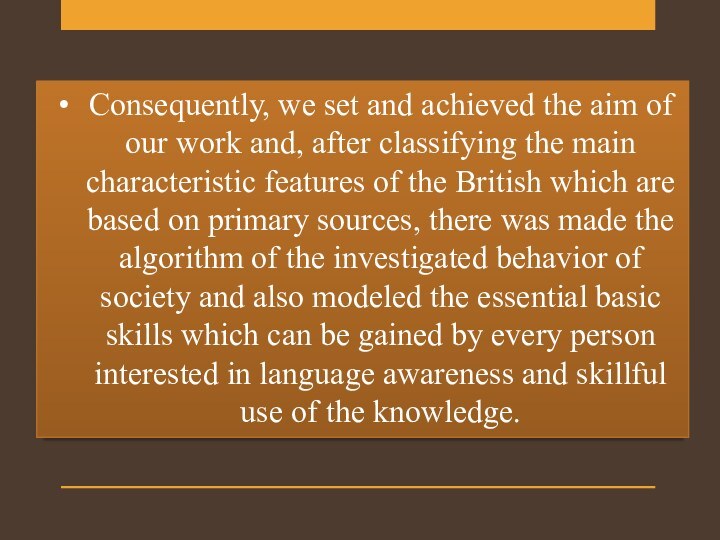

unwritten rules of behavior in it
how these rules reflect national character of the British
George Orwell
Therefore understanding the nation will lead to deeper understanding of the language and will be formed at the subconscious level.
Hypocrisy
One of the stereotypes, secrets we wanted and tried to comprehend. We can say that their forms of politeness /modesty/justice imbued hypocritical, but true is the fact that almost always their hypocrisy is a form of politeness.
Moderation
The desire to avoid extremes, excess and intensity of any kind. Fear of change. Fear of fuss. Blame incontinence and the need to restrain their desires.
Worldview
Persuasion of the English. Their way of thinking about the nature of things.
Empiricism is peculiar British earthiness, prose, their pragmatism, cynical and arrogant practicality, their die-hard realism
Pessimism
For a typical English whining qualitative difference. Pessimism is their special kind of fatalism.
Fairness, "fair game"
The principle of fair play is the basis of almost all aspects of the unwritten behavioral etiquette.
Modesty
They say the opposite of what people are trying to make clear, or use intentional understatement.
Politeness
Politeness as defined involves some artificiality and hypocrisy, but English politeness is almost always a pureformality, compliance with the rules, rather than an expression of genuine participation.
Moral values
The ideals of the British. Their basic guidelines, moral standards under which they try to build their lives, even though they do not always do it.
Core: social awkwardness
"Core" of English uniqueness. Social awkwardness is short hand notation of all our social systems and chronic defects.
Conclusion